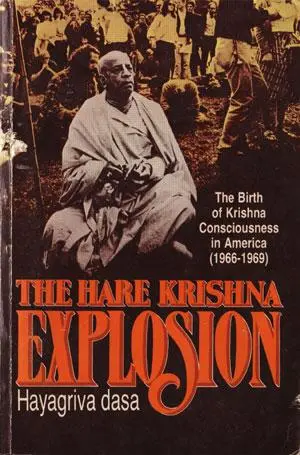I have read and re-read this chapter many times this election year, and this is a perfect description on the demoniac man.
The demoniac man knows no limit to his desire to acquire money. That is unlimited. He only thinks how much assessment he has just now and schemes to engage that stock of wealth farther and farther. For that reason, he does not hesitate to act in any sinful way and so deals in the black market for illegal gratification. He is enamoured by the possessions he has already, such as land, family, house and bank balance, and he is always planning to improve them. He believes in his own strength, and he does not know that whatever he is gaining is due to his past good deeds. He is given an opportunity to accumulate such things, but he has no conception of past causes. He simply thinks that all his mass of wealth is due to his own endeavor. A demoniac person believes in the strength of his personal work, not in the law of karma. According to the law of karma, a man takes his birth in a high family, or becomes rich, or very well educated, or very beautiful because of good work in the past. The demoniac thinks that all these things are accidental and due to the strength of his personal ability. He does not sense any arrangement behind all the varieties of people, beauty, and education. Anyone who comes into competition with such a demoniac man is his enemy. There are many demoniac people, and each is enemy to the others. This enmity becomes more and more deep—between persons, then between families, then between societies, and at last between nations. Therefore there is constant strife, war and enmity all over the world. (from purport to Bhagavad-gita 16-16)
Arrogance, pride, anger, conceit, harshness and ignorance—these qualities belong to those of demonic nature, O son of Pṛthā. (Bg 16.4)
In this verse, the royal road to hell is described. The demoniac want to make a show of religion and advancement in spiritual science, although they do not follow the principles. They are always arrogant or proud in possessing some type of education or so much wealth. They desire to be worshiped by others, and demand respectability, although they do not command respect. Over trifles they become very angry and speak harshly, not gently. They do not know what should be done and what should not be done. They do everything whimsically, according to their own desire, and they do not recognize any authority. These demoniac qualities are taken on by them from the beginning of their bodies in the wombs of their mothers, and as they grow they manifest all these inauspicious qualities. (From purport to Bg. 16.4)
Full texts and purports More

















